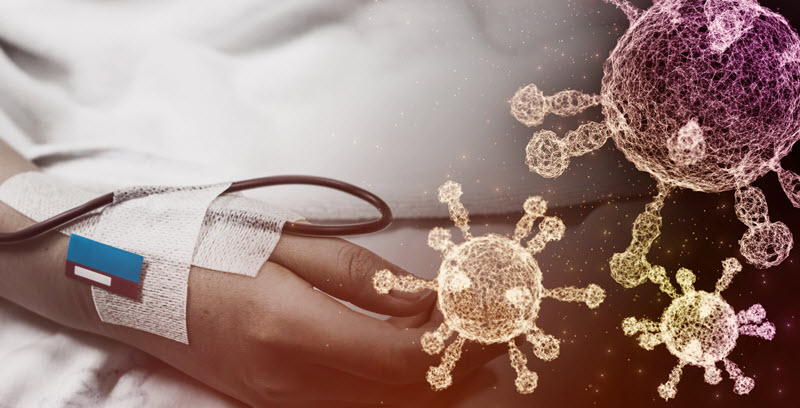| By Deirdre Hiam |
According to the American Cancer Society, it’s estimated that there will be nearly 1.8 million cancer diagnoses in the United States this year.1 Cancer impacts all ages, socioeconomic classes, and races. One in three people will be diagnosed with cancer at some point in their lives.2 The Gale Encyclopedia of Cancer, 5th Edition has over 670 entries, covering cancers, cancer drugs, traditional and alternative treatments, diagnostic procedures, cancer-related side effects, methods of cancer prevention, cancer’s emotional and psychological effects, and other issues related to cancer and its treatments.
One of the most important issues that surfaced this past year was cancer and the impact of the coronavirus on cancer patients. At the start of the pandemic, most procedures were put on hold, leading to a substantial decline in cancer screening. “Between March and April of 2020, 24% (27% who currently have cancer) reported delays in care or treatment, and 12% (13% in active treatment) reported that their care was delayed indefinitely due to COVID-19. Over half of patients in active treatment (55%) reported changes, delays, or disruptions in care, including in-person doctor visits, supportive services, and imaging procedures. . . . Another issue complicating cancer care and in some places necessitating the delay of elective surgeries was the shortage of personal protective equipment (PPE). Hospitals across the US were dealing with a shortage of PPE that would put some cancer patients at further risk of infection were they to interact with healthcare workers lacking proper PPE.”3
As we continue to deal with the impact of COVID-19, it’s important for everyone to help reduce the risk of contracting and spreading the virus. It is recommended that everyone maintain social distancing guidelines, wear proper face coverings, and continue to follow hygiene recommendations.4
Written for general readers by experienced medical professionals, The Gale Encyclopedia of Cancer is helpful for readers hoping to navigate cancer and its treatments. Whether you’re a patient researching a diagnosis or a caregiver researching for a loved one, The Gale Encyclopedia of Cancer contains authoritative and comprehensive information and a start-to-finish overview of a cancer and its treatments, so the average person knows what to expect.
The Gale Encyclopedia of Cancer is available in print and eBook format on Gale eBooks.
Meet the Author
Deirdre Hiam will be celebrating her 21st anniversary at Gale in January: she started as an intern in 2000 and never left. After being part of the Science team for several years, Deirdre joined the BFLASH team (biographies, film, law, automotive, science, and health), where she manages the content creation of health and medical eBooks. She’s currently working from home with two coworkers (ages 4 and 10) who love to pop up in Zoom meetings, one stir-crazy husband, and a golden retriever who could not be happier with everyone at home.
1. American Cancer Society, Cancer Facts & Figures 2020.
2. American Cancer Society, “Questions People Ask About Cancer,” last revised July 8, 2020.
3. Rocheleau, Jackie. “COVID-19 and Cancer.” In The Gale Encyclopedia of Cancer, 5th ed. Gale, 2021.
4. Centers for Disease Control and Prevention, “How to Protect Yourself & Others,” updated November 4, 2020.


